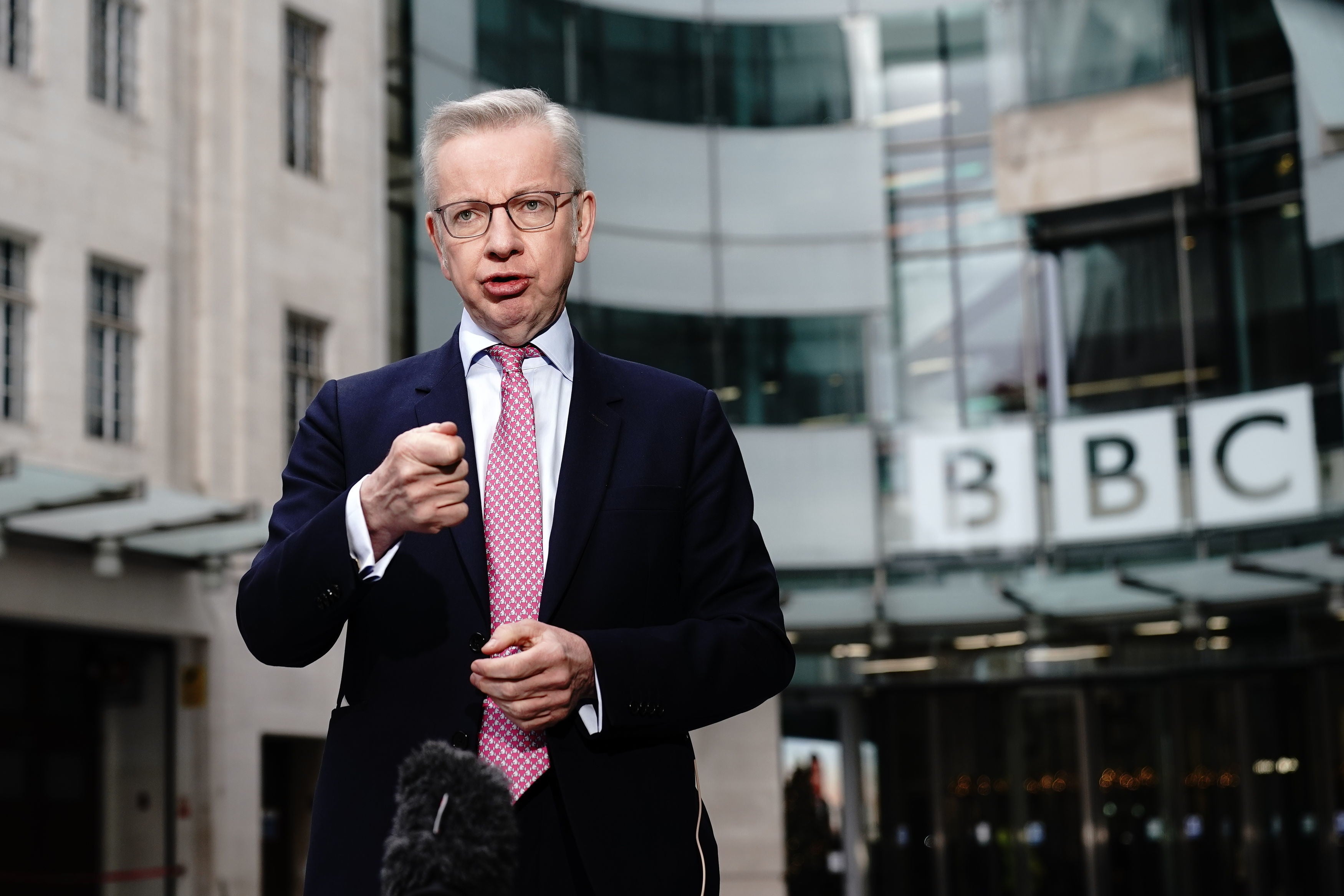Gove insists Sunak won’t call general election if he loses key Rwanda vote
Cabinet minister defends Rwanda plan as ‘tough and robust’ after Tory right rejects legislation
Your support helps us to tell the story
From reproductive rights to climate change to Big Tech, The Independent is on the ground when the story is developing. Whether it's investigating the financials of Elon Musk's pro-Trump PAC or producing our latest documentary, 'The A Word', which shines a light on the American women fighting for reproductive rights, we know how important it is to parse out the facts from the messaging.
At such a critical moment in US history, we need reporters on the ground. Your donation allows us to keep sending journalists to speak to both sides of the story.
The Independent is trusted by Americans across the entire political spectrum. And unlike many other quality news outlets, we choose not to lock Americans out of our reporting and analysis with paywalls. We believe quality journalism should be available to everyone, paid for by those who can afford it.
Your support makes all the difference.Rishi Sunak’s Rwanda legislation has been defended as “tough and robust” by Cabinet minister Michael Gove after a fresh blow was dealt by a critical legal assessment for the Tory right.
Mr Gove said he is confident of Conservative support for the “legally sound” plans and insisted ministers are not “contemplating” a general election if they lose Tuesday’s vote.
The housing secretary said the government will “listen” to critics after Sir Bill Cash signalled his legal assessment for the Tory right concludes the proposed law is not fit for purpose.
The veteran Conservative, who has chaired a legal examination being eagerly awaited by many hardliners, suggested the legislation is not “sufficiently watertight”.

Robert Jenrick, who resigned as immigration minister over the policy, confirmed on Sunday he will not support the “weak Bill that will not work”.
But he said “we can fix this”, raising the possibility he could abstain along with other opponents before trying to amend the legislation at a later stage.
That could spare the prime minister a damaging defeat this week, as he is relying on the law to revive his asylum plans that were deemed unlawful by the Supreme Court over concerns for refugees’ safety.
MPs on the Conservative left are also weighing up whether they can back it, and a defeat will deal a major blow to Mr Sunak’s credibility in office.
Mr Gove told Sky’s Sunday Morning With Trevor Phillips: “We take seriously the views of colleagues, particularly eminent colleagues like Sir Bill who have deep and profound legal experience.
“But we believe this Bill is tough and robust.”

He argued to the BBC that it is “legally sound” despite one legal assessment for the government giving it a “50 per cent at best” chance of success, and said it only leaves “narrow” scope for court appeals.
Mr Gove insisted that they were not thinking about launching a general election if they fail to get the Bill through parliament.
“No, we’re not contemplating that because I’m confident that when people look at the legislation and have a chance to reflect they will recognise this is a tough but also proportionate measure,” he told Sky.
Senior Conservative Damian Green and his band of moderate One Nation Conservatives will meet on Monday to make up their minds whether to oppose the legislation over concerns about breaking international law and deeming Rwanda “safe”.
The former de-facto deputy prime minister played down the “very, very small number” of his colleagues who are agitating for a new leader.
He told the BBC’s Sunday With Laura Kuenssberg: “It’s a vanishingly small number and anyone who thinks that what the Conservative Party or the country needs is a change in Prime Minister is either mad or malicious or both.”
Labour will whip to vote against the Bill, meaning a rebellion by just 28 Tories could defeat the legislation central to Mr Sunak’s £290 million scheme to send people who arrive on small boats to East Africa.
Sir Bill wrote in the Sunday Telegraph that they had been considering whether the “wording is sufficiently watertight to meet the Government’s policy objectives”.
“At present it does not,” he said. “Our report, I hope, will be helpful to the Government in deciding whether the Bill in its current form is fit for purpose or will require further amendment, even by the Government itself.”
Mr Jenrick, who had long been allied to Mr Sunak until his resignation this week, indicated he might not go as far as voting against it this week.
“I won’t be supporting this Bill but I do think we can fix this, and that’s what I want to do now,” the MP told the BBC, before insisting he is “not interested” in running for the Tory leadership.
Meanwhile, sacked home secretary Suella Braverman echoed Mr Jenrick by raising concerns that the legislation does not tackle the issue of temporary Rule 39 injunctions from the European Court of Human Rights, which stopped last year’s flight.
“I know that our Attorney General has advised that to ignore a Rule 39 injunction would be a breach of international law, so therefore as it stands Rule 39s will block flights,” Mrs Braverman told the Sunday Telegraph.
Miriam Cates and Danny Kruger, co-founders of the right-wing New Conservatives group, said there are “big question marks” over the legislation.
“There’s no point uniting around a policy that doesn’t work. That way we’ll just unite and die,” they wrote in the Sun on Sunday.
Mr Sunak urged Sir Keir Starmer to “rise above political games” and “act in the national interest” by supporting the Bill.
But the Labour leader has stepped up his attacks and will use a speech on Tuesday to accuse the Tories of being unable to govern while their warring factions are “fighting like rats in a sack”.
